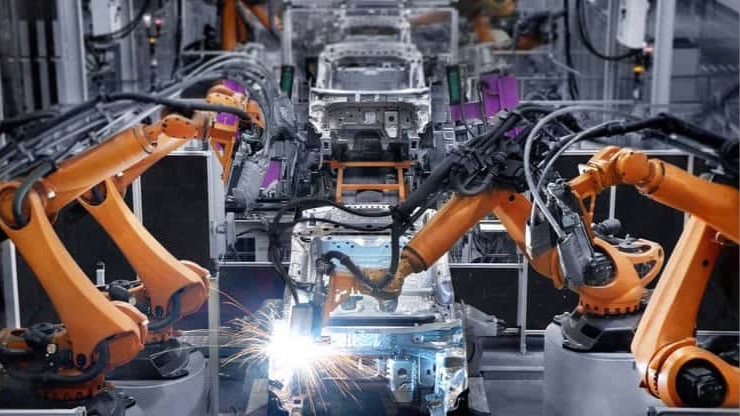In 2022, while Chinese investment contracted by almost 7% in Latin America, in Mexico it soared by 48%. 2.52 billion dollars made its way from the Great Wall to the Zocalo, boosting the manufacturing and automotive industries located in the north of the Aztec nation.
In 2023, the movement of capital was even more spectacular, as the Chinese consortium LGMG Group alone announced a 5 billion-dollar project in Nuevo León, a state bordering on Texas, to build an industrial park.
Although the commercial tension between the US and China is hurting the world, some small fish have been able to take advantage of this fight between whales: Vietnam, Malaysia and others are attracting American capital that used to go to China; and, in the case of Mexico, due to its geographical position and treaties signed with Washington, it is drawing, in addition to American capital, a lot of Chinese money whose owners are trying to evade the trade barriers imposed by the US.
Like swallows taking flight in the Far East seeking to land near the United States, billions of dollars are flying right over Cuba without even making a stopover on the Caribbean island, which, given its location and history (before the Castro brothers) should be receiving flocks of these millionaire swallows, which would allow national industry and agriculture to flourish.
That investment is not landing in the country despite the fact that, after 65 years of its ruinous Revolution, Cuba has, to our national shame, what is possibly the cheapest set of workers in the world in terms of the quality-to-price ratio. The great achievement of socialism is to have trained thousands of engineers, doctors and technicians of all kinds, who today would feel blessed by the Holy Spirit if someone paid them even the paltriest of wages. How many Chinese businessmen with experience in the capitalist exploitation of socialist workers could enjoy the luxury of underpaying these desperate Cuban professionals? After paying those at the top their cut, of course.
Is the U.S. embargo responsible for making beautiful Cuba look like the ugly girl in the corner at this carnival of money, with no one asking her to dance?
Let us suppose that the embargo does indeed prohibit (we will see later that it does not) direct exports from Cuba to the United States. If that were the case, it would still be very lucrative for Chinese businessmen to take advantage of Cuba's extremely cheap and relatively skilled labor force to develop projects, plans, parts, pieces and services for the textile, automotive, telecommunications or renewable energy industries, or any other that could be inserted into production chains ending in Mexico.
It is very common today for goods to be manufactured in many countries simultaneously; each iPhone, for example, features parts made by companies spanning more than 30 nationalities. So, why do Chinese businesspeople totally ignore Cuba, when they could save by including it in the value chains of their new Made-in-Mexico products?
Nothing stops the creativity of businesspeople when it comes to innovating ways to lower costs; nothing except fear and distrust. And therein lies the problem: the fear and distrust that even Chinese "friends" feel towards the Cuban Communist Party (CCP). We ought not forget that they suffer their own Communist Party and, if they have been able to prosper, it is because it has adopted ideas that the Caribbean PCC refuses to incorporate, instead preserving its crude anti-capitalist essence. It seems that the Chinese, based on their own experience, do not trust the Communists.
Returning to the embargo, it is designed to torpedo the development of a government, the Cuban Government, that is a declared enemy of the US, a government that came about declaring war on the USA by financing and arming the country's enemies, while at the same time spouting incendiary anti-Yankee rhetoric around the world and backing a series of terrorist governments, including Russia, Iran, North Korea and Venezuela.
The embargo is not, however, designed to impoverish Cuban civil society. Therefore, there have always been mechanisms at the disposal of the Legislature and the Executive in Washington (ones recently used by Joe Biden) to support the development of Cubans who are independent (not only dissidents) of the Cuban government. It is Castroism that has quashed any kind of civil society in Cuba, crushing any possibility of a private sector that today could comprise the business fabric necessary to take advantage of the opportunity these Chinese investments represent to even export directly to the United States.
It is Castroism, not the embargo, that blocks free international trade for Cubans, what Raúl calls "the socialist principle of the State monopoly on foreign trade." It is Castroism, not the embargo, that blocks foreign investments from going directly to private entrepreneurs by forcing them to go through the government, even to hire labor.
The fact that neither the State, through state-owned enterprises, nor outsiders through foreign investment, nor local entrepreneurs, through MSMEs, are employing many more very cheap Cuban professionals, indicates how twisted and perverse the policy is of a government incapable of taking advantage of the army of paupers it has created; well educated people, but ones who need to be paid something to survive in the socialist paradise, because dignity, at times, is not enough to prevent anemia or scurvy.
Simple political and economic changes would have an enormous effect on the volumes of investment received. Investment could even save what is left of the regime, but Castroism is exhausted or paralyzed by internal tensions. While Miguel Díaz-Canel cynically dedicates himself to demolishing socialism and promoting inequality in the name of social justice, the more misery there is in Cuba, the more the military devours the country and positions itself to, when the inevitable happens, transform from illustrious members of the PCC to standard-bearers of the CPD: Cuban Party for Dollars.
